I am going to change things up a bit for my Tombstone Tuesday posts and feature some tombstone art posts in between my regular Tombstone Tuesday blog posts.
I find the artwork on tombstones very interesting, especially on the older tombstones. What do those intricate carvings mean? Decades ago not everyone could read or write and people conveyed a message, belief, or sentiment on their loved one’s tombstone with beautiful carvings.
Today’s tombstone symbol is the Willow Tree.
The Willow Tree was a popular tombstone symbol used in the 1830s-1860s. In the colonial states it was one of the first symbols used after the skull and crossbones and the winged death head icons were no longer used. Here in the Midwest, where those early Colonial tombstone motifs were not used, the Willow Tree was one of the very first tombstone symbols used, usually carved on a sandstone or marble marker.
Obviously, the Weeping Willow Tree can symbolize sadness, weeping, and mourning.
But the Willow Trees may also symbolize longevity, immortality, the resurrection of the soul, and life after death. Willows grow rather quickly and are quite hardy. They can sustain damage from storms and can withstand pruning. Cuttings will take root rather easily, even after being on the ground for some time. It is sometimes difficult to rid an area of willow trees and their sprouts.
Willow Tree symbols in Zion Lutheran Cemetery, Schumm:
This tombstone from Fountain Chapel Cemetery, Mercer County:
A Willow Tree from St. Jacob Cemetery, Botkins, Ohio:
Willow Tree from Evangelical Protestant Cemetery, Van Wert County:
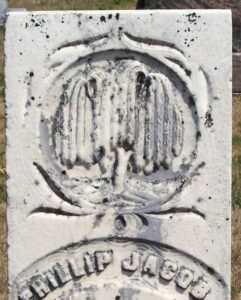
Evangelical Protestant Cemetery, Van Wert County, c1859 Willow Tree, Phillip Jacob Wendel tombstone.
I hope you enjoy viewing this tombstone art. As you can see, there are many variations of the willow tree symbol.

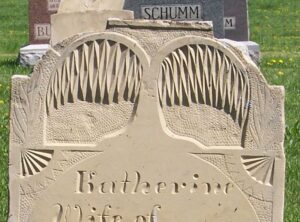
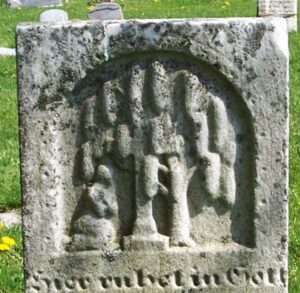
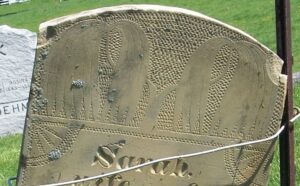
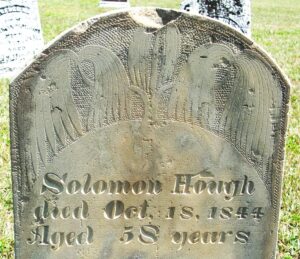
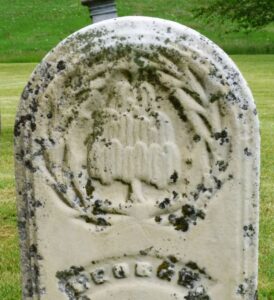


4 comments
Skip to comment form
Very interesting article on the Willow Tree. Enjoyed it!
Author
Thank you!
So interesting! Thank you Karen
Author
Thank you!